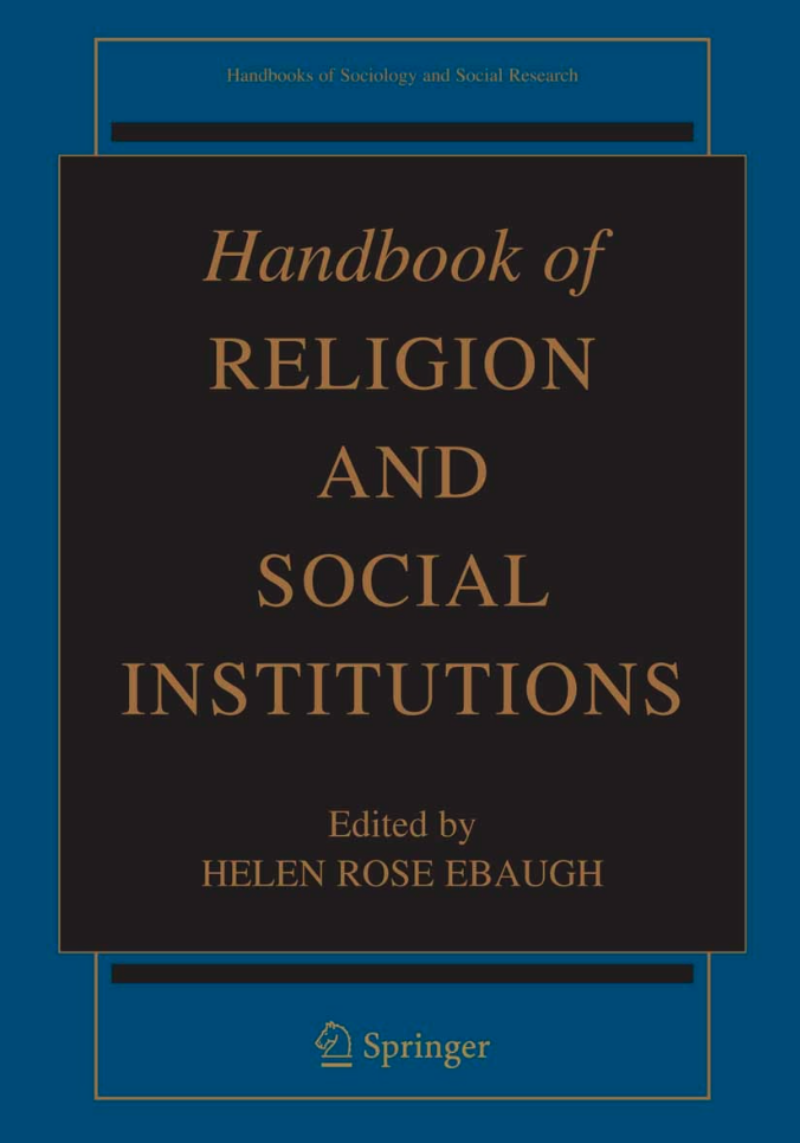Citation
Benson, P. L., & King, P. E. (2005). Religion and adolescent development. In H. R. Ebaugh (Ed.), The handbook of religion and social institutions. New York: Springer.
Abstract
Handbook for Religion and Social Institutions is written for sociologists who study a variety of sub-disciplines and are interested in recent studies and theoretical approaches that relate religious variables to their particular area of interest. The handbook focuses on several major themes: -Social Institutions such as Politics, Economics, Education, Health and Social Welfare -Family and the Life Cycle -Inequality -Social Control -Culture -Religion as a Social Institution and in a Global Perspective.
Copyright
Year: 2006
Holder: Springer Publications
DOI: https://link.springer.com/book/10.1007/b102451
Continue Exploring

Youth
“We are Protected”: Examining youth perceptions of safety
“We are Protected”: Examining youth perceptions of safety within a faith-based positive a faith-based positive youth development program in El Salvador / Journal of Youth Development

Spirituality
Religion as Fertile Ground
Abstract An extensive body of research points toward spirituality and religiousness as resources for promoting human thriving. People with strong connections to the transcendent and religious meaning in life often view morals and values as central to their self-concepts. Although moral identity theory and contemporary views of virtue development emphasize the importance of narrative identity for habituated moral action, the two are often discussed in isolation of each other. In this chapter, the authors highlight how their commonality is particularly evident when examining the potential of religion to provide a transcendent self-narrative that leads to virtue formation and moral action…

Gratitude
How diverse beliefs shape the experience of transcendent gratitude
Citation Nelson, J., Mangan, S., Baer, R. A., Ramdass, J. V., & King, P. E. et al. (2024). How diverse beliefs shape the experience of transcendent gratitude, The Journal of Positive Psychology, 19(1), 11-24. Abstract As a novel contribution, this study considers transcendent gratitude (e.g. gratitude towards non-human benefactors such as God, Science, or Karma) across diverse belief systems. The sample included 619 participants (M age 37.5, 52.6% female) across the U.S. with beliefs across three distinct categories: a) Theistic; 38.4%), b) Spiritual but not theistic; 26.4%, and c) Non-theistic/Non-spiritual (Other);…


